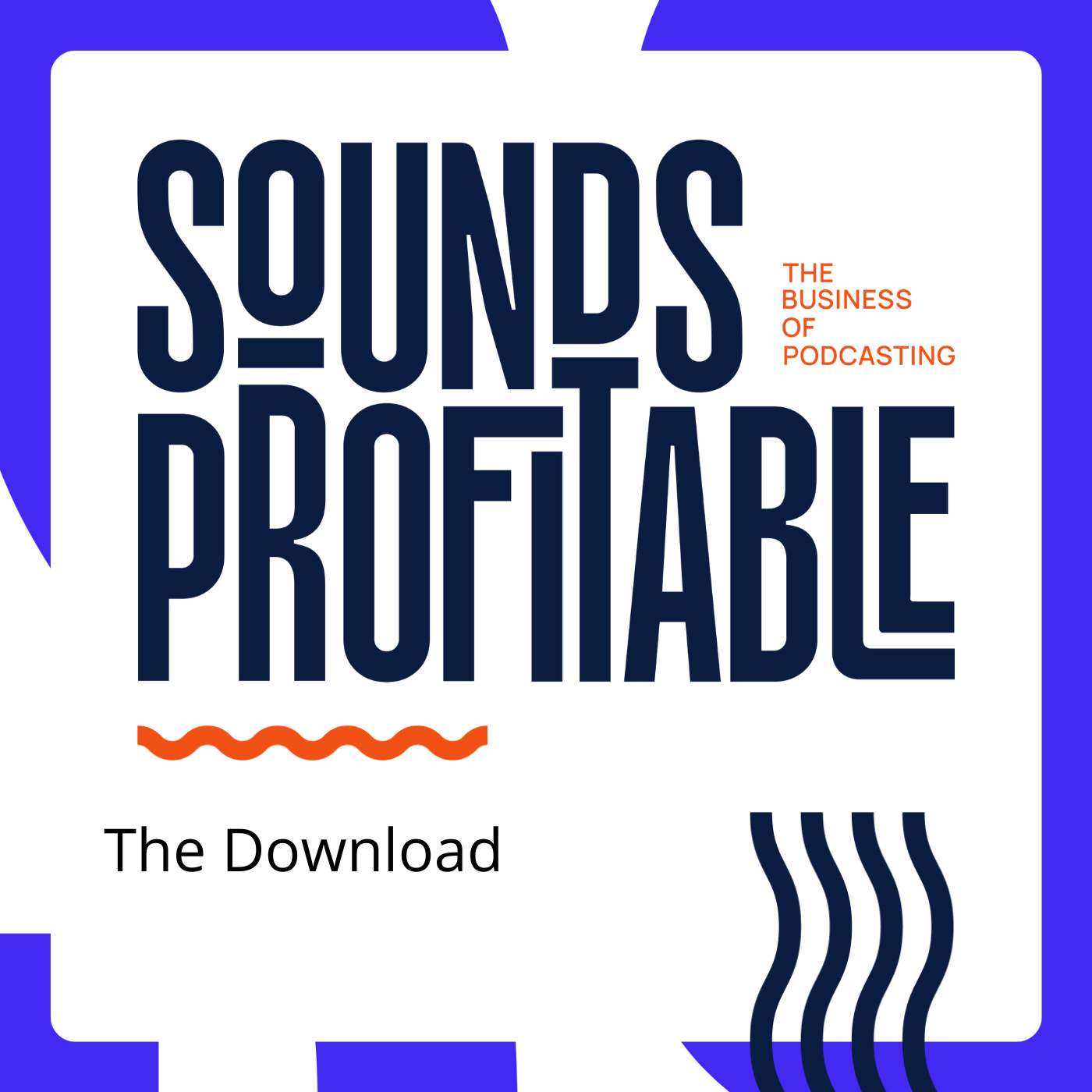Manuela: This is The Download from Sounds Profitable, the most important news from this week and why it matters to people in the business of podcasting. I’m Manuela Bedoya.
Shreya: And I’m Shreya Sharma.
Manuela: The Download is brought to you by Magellan AI. Track the trends in spend, ad load, podcasts on YouTube, and more with Magellan AI’s advertising benchmark report for Q4, available now. You can find a link in the description or visit Magellan dot AI.
Shreya: This week: “They are blatantly blocking news” says sales lead, Pew Research publishes Podcasts as Source of News study, Americans spend an average of $48 on video streaming, and the FTC issues nearly 700 companies about misleading advertising.
Let’s get started.
‘They are blatantly blocking news’: Confessions of a programmatic sales lead on brand safety filters’ impact on publishers’ direct-sold ads
Manuela: This Monday a new article in Digiday’s Confessions series was published by Kayleigh Barber. In the piece, Barber interviews an anonymous programmatic sales lead at an unnamed news media company. The interviewee details systematic issues centering around brand safety filters, keywords, and outdated block lists that have unintended consequences when applied to news outlets.
The sales lead gives the early days of COVID-19 as an example. The term “covid” was implemented as a keyword filter on blocklists almost universally, but with a promise those advertisers would eventually come back. From the article:
“What happened was they came back and you saw a lot of messages around community development [and] support for the community, but the technology on the backend was never updated, even for direct campaigns. So Covid was still being utilized as a keyword block list. And you continue to have this kind of spiral or snowball effect of the keywords compounding.”
This has been a growing problem for news outlets for years. To the point The Download has covered multiple similar articles in the past. All of which end with a similar sentiment: A sincere effort needs to be made to educate both advertisers and publishers of the issues at hand, as well as work towards a future happy medium where brand safety can be enforced while not undermining journalists and their important work.
Stay tuned for the next story, which might just contain information that will help lead the industry in that direction.
Pew Research publishes Podcasts as a Source of News and Information
Shreya: The Pew Research Center has recently published a report titled Podcasts as a Source of News and Information. According to a blog post from this Tuesday, the study is the result of surveying over 5,000 adults from December 5th to December 11th in 2022. From that article:
“Among U.S. podcast listeners – those who have listened to a podcast in the past 12 months – 29% say that staying up to date about current events is a major reason they listen to podcasts. Two-thirds of podcast listeners say they have heard news discussed on the podcasts they listen to – amounting to a third of all U.S. adults. And among those who hear news on podcasts, the vast majority say they expect the news they hear there to be mostly accurate.”
Those who have read Sounds Profitable’s Safe and Sound study from last year will not be surprised by these finding. Audiences trust podcasts, and they support those podcasts even when they get into territory traditionally considered brand-unsafe. From the article:
“Among all podcast listeners, just over half (54%) say they hear guest or host opinions about politics and government – including 25% who say they hear this type of content extremely or fairly often and 29% who hear it sometimes.”
Podcasting finds itself in a privileged position. Audiences love getting their information from it. They aren’t tied to any one news outlet. In fact, the Pew research found only one in five podcast listeners surveyed listen to podcasts connected to major news organizations.
The current landscape of journalism, both in text and podcasting form, is being stripped of monetization options thanks to the same issues mentioned in the previous story. Old filters and keyword bans need not be a problem in this industry. Podcast audiences can handle unsavory content. They’re active in supporting the shows they like and will weather rough seas in the interest of supporting their favorite content.
Americans Spend $48 per Month on Video Streaming Services — and Half of Those Surveyed Say That’s Too Much
Manuela: This Tuesday, Todd Spangler, writing for Variety, covered the trend of video-on-demand streamer fatigue and rising costs. From the article:
“As streaming video competition continues to intensify, subscription growth rates across the industry have slowed — and churn rates have increased, according to the Deloitte’s 17th annual Digital Media Trends report. On average, U.S. consumers pay $48 per month for subscription-video services, Deloitte’s survey found. About half of those surveyed agreed that they “pay too much” for SVOD services, while about one-third said they intend to reduce their number of entertainment subscriptions.”
According to the study, overall subscriber churn over a six month period in 2022 reached 44%, seven percent higher than the reported churn from 2021. Streaming services are making efforts to combat this, either by offering more content or debuting lower price points with ads.
Podcasting, on the other hand, has a leg up. And not just because most podcasts are free.
While a premium subscription to a given podcast may cost as much as an ad-supported tier on a video streaming service, that support is given with the understanding it’s directly supporting content the listener likes. Instead of paying a large streamer up to $20 a month, including services infamous for canceling beloved content early, they can give $8 to three podcasts they specifically want to keep alive.
If podcasting plays its cards right right, it’s possible podcasts could be the tool that helps alleviate that streamer churn. Some tentative first steps have been demonstrated in implementing podcasts into streaming apps, and tie-in podcasts are nothing new, but the industry feels ripe for a streamer truly embracing podcasts as an integrated, consistent strategy.
FTC Warns Almost 700 Marketing Companies That They Could Face Civil Penalties if They Can’t Back Up Their Product Claims
Shreya: Last Thursday the FTC posted an article detailing a notice sent to approximately 670 companies marketing over-the-counter drugs, homeopathic products, and dietary supplements. Civil penalties up to $50,120 could be sought if ads skirting the law are found. From the article:
“Under FTC law, companies must back up claims about what their product can do with reliable evidence. If a company makes a claim about the health or safety benefits of a product, that claim must be based on scientific evidence. If a company claims that its product can cure, mitigate, or treat a serious disease such as cancer or heart disease, it must back up that claim through the accepted standards of scientific testing.”
Director of the FTC Bureau of Consumer Protection Sam Levine stressed a bedrock principle of FTC law is adequate support for claims made for such products. From the article:
“The notices outline specific unlawful acts and practices, including failing to have: 1) a reasonable basis consisting of competent and reliable evidence for objective product claims; 2) competent and reliable scientific evidence to support health or safety claims; and 3) at least one well-controlled human clinical trial to support claims that a product is effective in curing, mitigating, or treating a serious disease.”
This section also specifically notes misrepresenting the level or type of substantiation for a claim – or misrepresenting a product’s claim as scientifically or clinically proven – is also considered an unlawful act.
Shady ad copy is nothing new, of course. But we are in an ecosystem where social media and influencer marketing can blow up to the point where controversy from, say, selling a square foot of land in Scotland makes NBC News.
Given the rise of a variety of podcast ads for supplements and dietary-related products, it’s worth keeping an eye on statements like this one from the FTC. There’s a sea of bad-faith products and advertisements out there. On the plus side: it’s easier to shine as a beacon of good behavior and trustworthy marketing in such a crowd.
Podcasting has yet to have a significant healthcare advertising-related controversy. Let’s straighten up, fly right, and ensure that streak continues.
Shreya: Finally, it’s time for our semi-regular roundup of articles we’re calling Quick Hits. These are articles that didn’t quite make the cut for today’s episode, but are still worth including in your weekend reading. This week:
- Podscribe is now IAB Tech Lab Certified. Announced this Monday, verification platform Podscribe announced they have officially received their IAB certification after a six month audit process.
- Podcast hosting platform Ausha has announced the implementation of ChatGPT into their social media management system.
- Netflix Earnings, Netflix’s Movie Strategy, Accretive Ads by Ben Thompson. This week’s Stratechery issue covers the recent Netflix earnings call, Thompson’s previous coverage of Netflix, and what could lie in Netflix’s future.
- Veritonic has published a new guide titled 5 Things to Consider When Running a Brand Lift Study for Audio.
Manuela: And that was The Download, brought to you by Sounds Profitable! Today’s episode was built using Spooler and hosted on Art19. Find out more at Spooler.fm and Art19.com
I know we went through today’s stories fast, so be sure to check out the links to every article mentioned, right in your podcast listening app, or on SoundsProfitable.com/Podcast. And thank you for sticking with us as we bring you the top stories you might have missed from the past week. I’m Manuela Bedoya.
Shreya : And I’m Shreya Sharma. Our producers are Bryan Barletta, Gavin Gaddis, and Tom Webster. Special thanks to Art19 for hosting The Download. And thanks to you for joining us.
Robot?


 "
"



